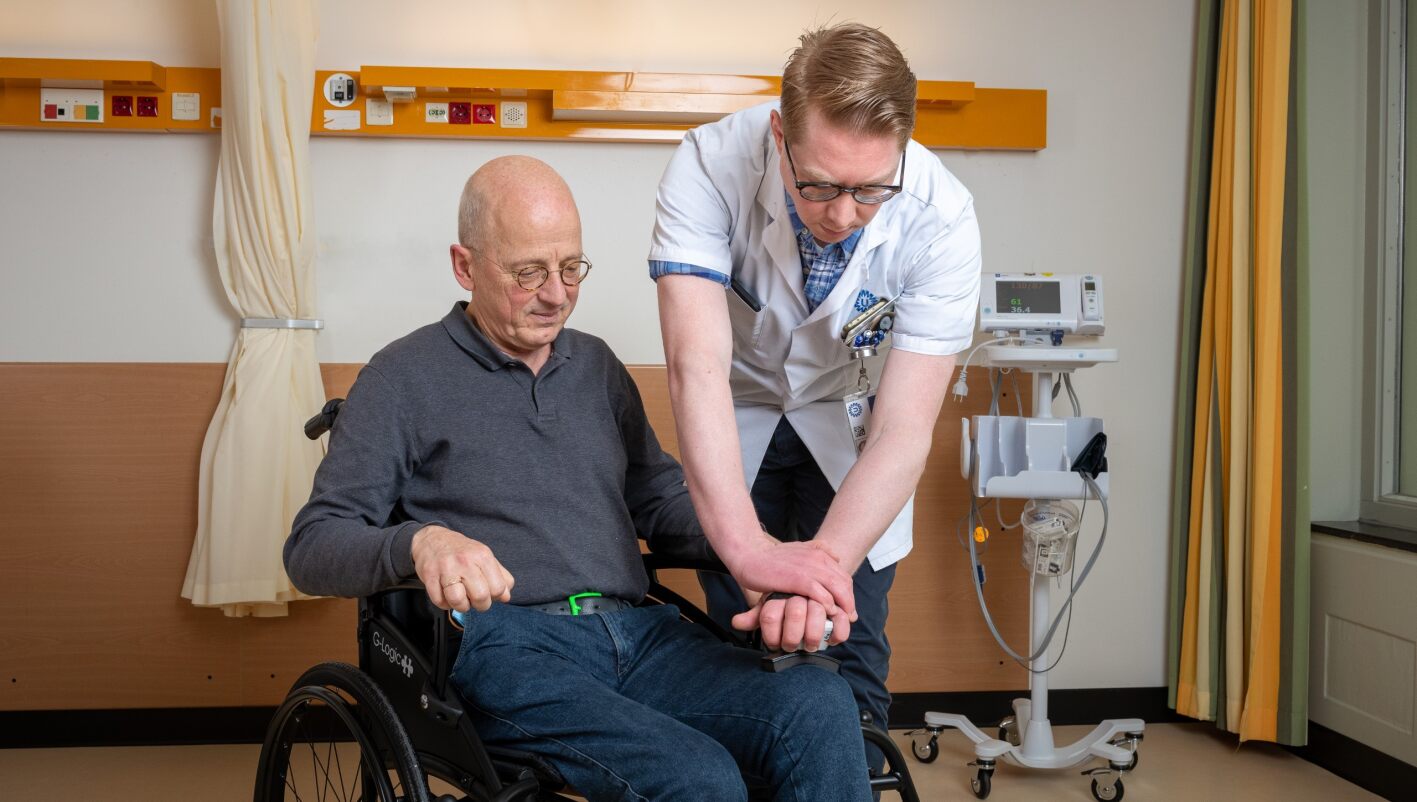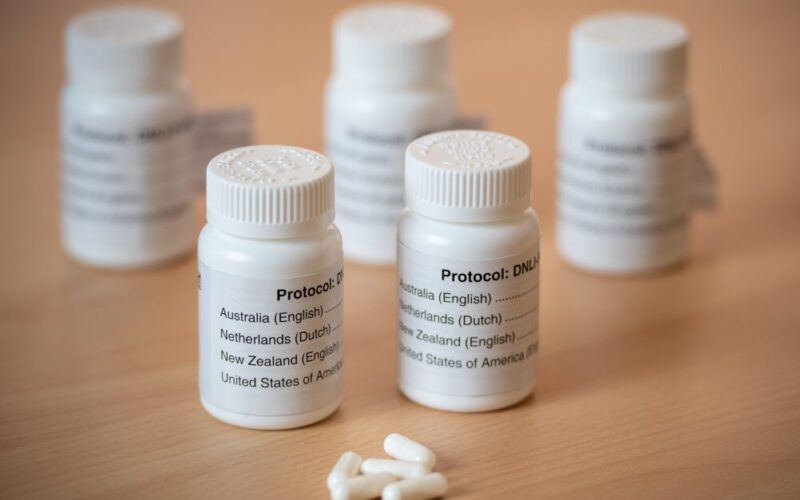People with ALS are receiving increasingly personalized care, and the first treatments are on the horizon. The ALS Center at UMC Utrecht is a hub of innovation. Here, four leading researchers unite genetic research, clinical studies, laboratory models, and care research in the battle against this deadly neuromuscular disease. In this four-part series, discover their goal to make ALS a treatable condition, offering the best care for all patients.
“ALS is a terrible disease. It’s devastating to watch someone gradually lose all their muscle function while remaining fully conscious,” says Leonard van den Berg. As a neurologist, he witnesses the disease’s effects on people daily.
Yet, he remains optimistic: “These are exciting times for ALS research. More drug trials are underway than ever before, and we’ve never received as much attention from society and the government as we do now. There is no cure for ALS yet, but we are getting closer to developing effective treatments.”
“These are exciting times for ALS research. More drug trials are underway than ever before, and we’ve never received as much attention from society and the government as we do now.”
ALS patient care in the Netherlands
About 20 years ago, Leonard founded the ALS Center at UMC Utrecht. Today, nearly all ALS patients throughout the Netherlands visit the center. After their diagnosis, patients are referred to a local ALS treatment team.
The team includes various healthcare professionals, such as rehabilitation doctors, speech therapists, physiotherapists, psychologists, occupational therapists, social workers, dieticians, and sometimes spiritual caregivers. These teams strive to provide the best possible care and quality of life for people with ALS.
Pioneering drug trials for ALS
Developing effective treatments for ALS requires clinical trials. In these trials, researchers test whether new drugs are effective in people with ALS. Currently, about 12 studies are ongoing at the ALS Center in Utrecht, a significant increase from just a few years ago.
Some of these clinical studies focus on gene therapy, like the drug Tofersen, targeting specific gene defects. However, most clinical trials explore other potential mechanisms, such as inflammatory processes, oxidative stress, excessive nerve cell stimulation, and disruptions in cellular energy production.
Leonard explains, “A single drug may not be very powerful on its own. Therefore, we believe treating patients with a combination of different drugs might produce a significant effect against ALS, similar to approaches in cancer and AIDS treatment.”

Many people with ALS are eager to participate in clinical trials. To facilitate this, Leonard van den Berg founded TRICALS, an alliance of ALS centers across Europe. “To ensure as many patients as possible can participate, all hospitals in TRICALS use the same methods and measurement values. This standardization allows us to compare results effectively and determine if patients truly benefit from new drugs. It involves significant motivation from participating centers and requires training professionals to analyze data consistently, which is a substantial task.”
This unified approach also offers significant advantages: “Since we standardize methods, the placebo group has become smaller. In a traditional drug study, half of the participants receive the new drug and the other half a placebo. Within TRICALS, the ratio is different: two-thirds of participants actually receive treatment. This allows us to extend and enhance the lives of more ALS patients through scientific research.”
Predictive Model Enables Clinical Trial Participation for More ALS Patients
Many people with ALS would like to participate in a clinical trial, but often they cannot due to rapid progression or slow progression of the disease, having had ALS for too long, or insufficient lung capacity. These factors usually preclude them from meeting the study’s inclusion criteria, which many find frustrating. Participating in an international drug trial often represents their last hope for an extended life.
The Utrecht ALS Center has developed a predictive model that considers all aspects of an ALS patient’s condition. For example, it might determine that someone with a lung function of 55% is still eligible, while someone with a lung function of 65% might not be. Thanks to this predictive model, patient participation in clinical trials within TRICALS has increased by 50% over the past two years. Even pharmaceutical companies now recognize the value of this model and are incorporating it into their drug trials.
Different types of therapies are required to treat various gene defects. These therapies could be developed rapidly, but they might also take up to 10 years. Timelines are notoriously difficult to predict, but the experts at the ALS Center at UMC Utrecht are committed to working until a cure is found.

